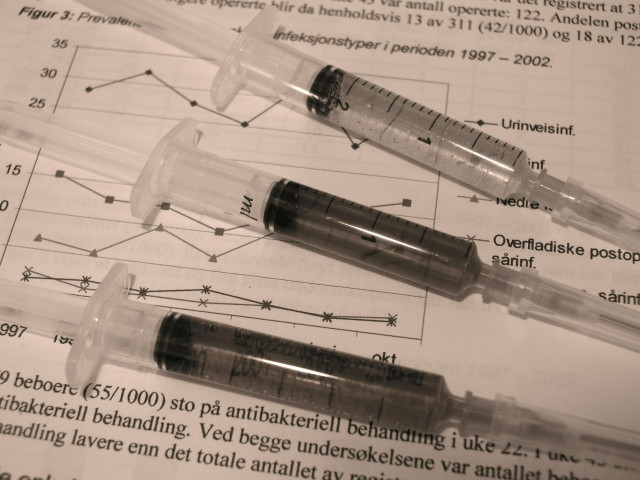Health matters: Malaria control officers missing in action
DHO is facing shortage of staff for the control and fumigation purposes.

The District Health Office (DHO) responsible for the entire rural area of Islamabad has only three officers to keep a check on malaria.
Sources in the health department informed The Express Tribune that there are only two supervisors and one inspector for 0.8 million people. These three officers are tasked with keeping a check on its spread, collecting blood samples for its testing and taking preventive measures before a malarial outbreak.
However the office does not even have enough people to spray pesticides. And the risk of an outbreak is high during summer. “About 90% of malaria cases remain unreported due to staff shortage,” the official said. He added that sanitary workers, clerics, gatekeepers, gardeners and security guards working in Basic Health Units (BHUs) and Rural Health Centres (RHCs) are being given additional responsibilities with regard to malaria control and are not paid for the extra work. “As they are getting no incentive for extra responsibility they not perform these services properly,” he said.
No substantive measures are being taken for preventing the spread of malaria, he added. Only those areas are focused in which there is an outbreak or are considered affected such as Bhara Kahu, Sihala, Humak and Tarlai. “If this is the situation of the capital’s suburbs one can only imagine how dismal [conditions] would be in the far flung areas,” the official added.
According to World Health Organization (WHO), over 4.7 million malaria cases were reported in Pakistan in 2010, compared to only 125,000 in 2009. Pakistan is classified in the third category of Mediterranean Region (EMR), which contributes 95% to the total anopheles-mosquito-born diseases in the world.
Deputy Commissioner Amir Ali Ahmad agreed that there is no staff available to work for malaria control or run its’ campaign in rural areas. He added that the government has given no funds for fumigation.
“We collect money from local councils for fumigation and hire volunteers for this purpose. Lower staff members in rural health departments are also being asked to perform these tasks,” he said. Ahmad said they have sent requests to the Ministry of Health to create posts for malaria control, but did not get any response. Also, he said, doctors are reluctant to work in rural areas for malaria control without any incentives.
Published in The Express Tribune, June 11th, 2011.


















COMMENTS
Comments are moderated and generally will be posted if they are on-topic and not abusive.
For more information, please see our Comments FAQ